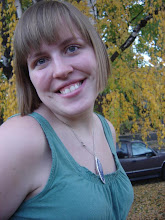Last week, I went to see “My Name is Rachel Corrie” produced by the OSU theatre department. Again, like the Laramie Project, this is a play with a strong tie to student affairs. “My Name is Rachel Corrie” is a one woman show complied from the emails, journals, and letters of Rachel Corrie. She was a student at Evergreen State Collge who went to Palestine to do peaceful protesting, and was killed by a bulldozer in 2003 in Gaza.
I can see exactly why OSU chose to do these two plays, “The Laramie Project,” and “My name is Rachel Corrie” in addition to their regular season. Both plays deal with subject matter that is very important for any college campus. Both Rachel Corrie and Matthew Shepherd were university students at the time of their deaths, and this kind of tragedy hugely affects campuses, and in their cases, the world. While the circumstances of their lives and their tragic deaths are very different, both called attention to a world wide issue, and each of them left an unexpected legacy.
The structure of these two plays is in some ways opposite. “The Laramie Project” is taken from the words of everyone except Matthew Shepard, “My Name is Rachel Corrie” is taken entirely from Rachel’s own words. Additionally, “The Laramie Project” begins with Matthew’s death, and “My Name is Rachel Corrie” ends with Rachel’s death. Because "My name is Rachel Corries" ends with Rachel’s death, the play itself does not explore the reaction of Evergreen students, or the reaction of the world. Yet her death must have had a profound impact. Instead, the play shows how a young woman like Rachel felt compelled to put herself in a dangerous situation: to help others.
Through the play, in her own words, the character of Rachel speaks of feeling lost in life, until she took a class at Evergreen that encouraged her to get involved in the community. From there the path to the Gaza strip seemed to clearly open itself up to her. This is the piece of her story that caused me to want to write about the play for my journal this week. I think so many college students are constantly looking for this moment, when their world simply lines itself up, and the path is clear.
Of course, I understand that the play is taken from only some of Rachel Corries words, and of course, only those thoughts, experiences and feeling she was willing to put down on paper. But even when she was in Palestine, she didn’t seem to feel any fear for herself, or for her own life. Instead, she wanted to know how she was ever supposed to find any meaning in life after she left Palestine. She talked of going to France, or going home to Olympia, but imagined she would be racked by guilt. I think this is a reasonably common feeling. I think that most young people who have some kind of life changing event such as serving in the Peace Corps have survivor’s guilt, or readjustment shock. It seems immeasurably sad to me that she didn’t ever get to leave; she never got the chance to see how this experience would affect the rest of her life.
In some ways I am stuck on Rachel Corrie’s story because I feel that it could have been mine. I could have made the choices she made. But I felt that my calling was working with the homeless through AmeriCorps, not peaceful protesting in Palestine. I feel aligned with Rachel Corrie, with all young people who feel a need to change the world in their own small way.
I find myself having to keep using the terminology of “being called.” When I was in high school I read Barbra Kingsolver’s “Poisonwood Bible” and was fascinated with the tragedies it told of Africa. It was my first experience with these horrors, they had never occurred to me before. In some ways it is a miracle that I’ve never signed up to go do work in Africa. I think that’s fine. I don’t regret my choices. I’m not placing any value judgment on any of these things. I don’t think every one who wants to make a difference need to go the Gaza strip. And I don’t think that is the message of “My Name is Rachel Corrie.” I don’t think Rachel Corrie herself would pass any judgment in this way either, I just think this happened to be her calling.
Now I have to come back to student affairs. All of this is great you may say, but what does it have to do with observations of student experiences? I think that every thoughtful student addresses this issue at some point, wanting to know how they are called to make a difference in the world. So what are universities doing to help students with these moments? How are we encouraging our youth to be global citizens? Who in my life helped me pursue volunteerism? Who in Rachel Corrie’s life helped her decide that activism was her life’s purpose?
While Rachel Corrie’s life was sadly cut short, she lived according to her values, which has to be respected. Yet, she was just a girl, and I’m not idealizing her, nor is the play. However, she has become an example of what following your heart can look like. Yes, it’s sad that she was killed by a bulldozer, it’s a huge tragedy. But the way she lived her life should be an inspiration to anyone, college students and beyond. And if we don’t learn something form this, that would be the real tragedy.
Subscribe to:
Post Comments (Atom)

No comments:
Post a Comment